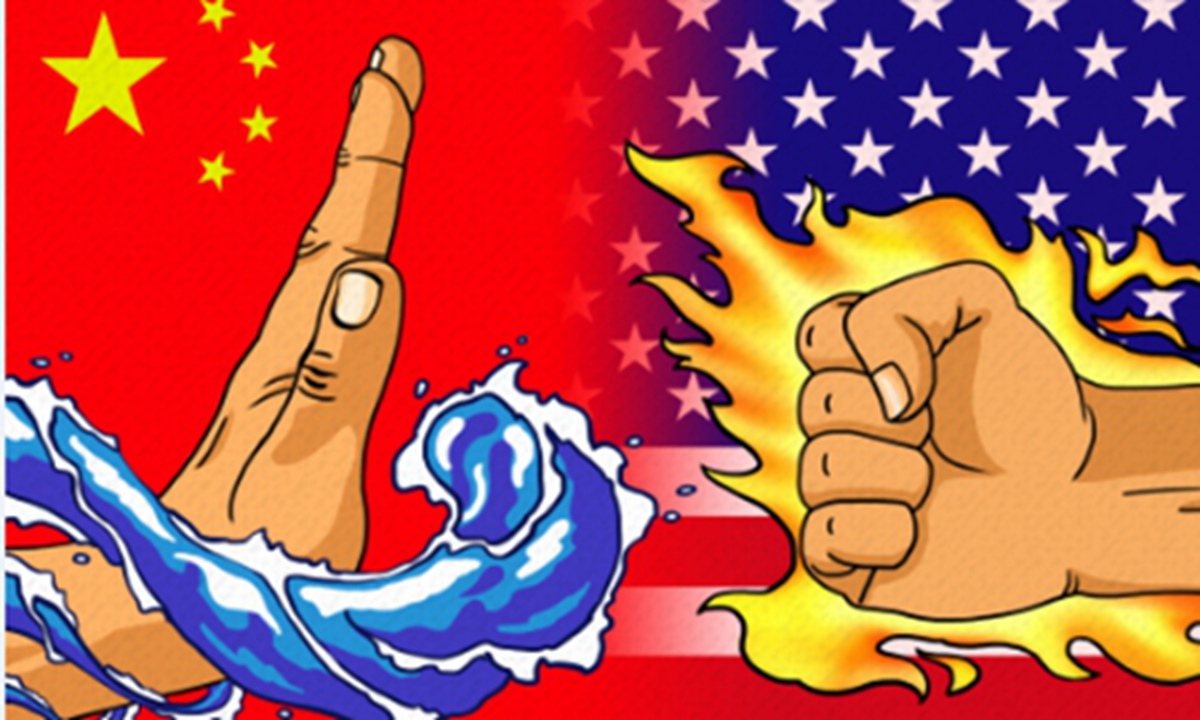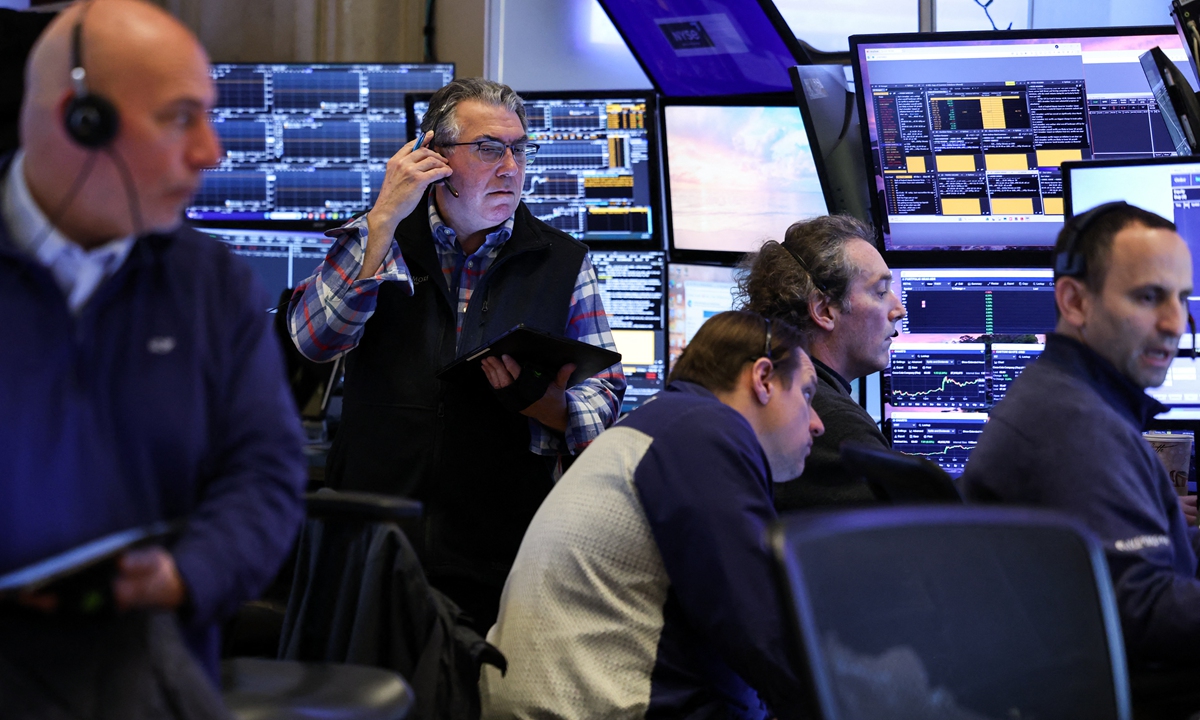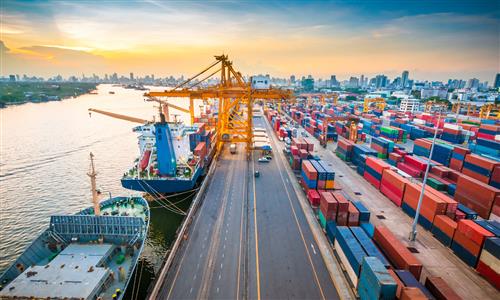'Pressure, threats and coercion not the right way to deal with China': China holds firm position against US tariff threats

China US Illustration: Liu Rui/GT
China on Thursday reiterated its firm position on the US' tariff threats, after Washington on Wednesday local time paused the higher "reciprocal tariffs" on most countries but raised duties on China to 125 percent, up from the 104 percent level that kicked in on Wednesday.
In response to a question on the situation, Chinese Foreign Ministry spokesperson Lin Jian on Thursday said that "the US, in defiance of global criticism, is pitching itself against the rest of the world." The spokesperson said that the US is still abusing tariffs on China, emphasizing that China firmly rejects and will never accept such hegemonic and bullying move.
Before the US' latest tariff moves, China on Wednesday announced four measures against the US, including raising tariffs on US products from 34 percent to 84 percent, adding US entities to relevant lists and filing lawsuit at the WTO. The hike was just hours after the 104 percent tariffs from the US kicked in earlier, according to BBC.
"China has taken necessary countermeasures against the US' bullying acts in order to safeguard its own sovereignty, security and development interests, and more importantly, to uphold international fairness and justice and the multilateral trading regime, and protect the common interests of the international community. A just cause enjoys the support of many. America's move that goes against the trend of the times will find no support and end up in failure," said Lin.
In response to a media question on Thursday regarding whether China has engaged in tariff negotiations with the US, Ministry of Commerce (MOFCOM) spokesperson He Yongqian said that "China's position is clear and consistent. If the US wants to talk, our door remains open, but dialogue must be conducted on the basis of mutual respect and equality. If the US wants to fight, our response will continue to the end. Pressure, threats, and coercion are not the right way to deal with China."
By once again raising duties specifically targeting China, the US misjudged its approach toward China, believing that coercion and pressure would work, some analysts said.
"By resorting to brute pressure and bullying, the US is eroding its own credibility. In contrast, China has maintained consistent principles: upholding the multilateral system and honoring mutual commitments," Zhou Mi, a senior research fellow at the Chinese Academy of International Trade and Economic Cooperation, told the Global Times on Thursday.
The remarks were echoed by Tadashi Yanai, chief executive officer of Uniqlo owner Fast Retailing Co, who said that the US' tariffs will lead to the country being isolated from the rest of the world. Yanai made the comments during a briefing in Tokyo on Thursday, according to Bloomberg.
"Tariffs that prioritize only one's own country are unacceptable. Doing such things could end up being detrimental to the country itself," Yanai said.

Traders work on the floor of the New York Stock Exchange (NYSE) at the opening bell on April 10, 2025, in New York City. Wall Street stocks opened decisively lower the day, giving back a fraction of the gains from the prior session's surge after US government backed down on many of his trade tariffs. Photo: AFP
Rejecting tariffs, a shared will
After the US backed off its so-called "reciprocal tariffs" against most countries that faced higher rates, global stock markets edged higher on Wednesday.
However, US stocks tumbled again on Thursday morning local time. The Dow Jones has opened 700 points lower on Thursday. The S&P 500 has opened with losses of 120 points, while the Nasdaq has shed 3 percent or 500 points in opening trade after its best single-day surge since 2001 on Wednesday, CNBC reported.
Spanish Prime Minister Pedro Sanchez said on Thursday the decision by the US to pause the enforcement of broad tariffs plan paved the way to possible talks, according to Reuters. Sanchez landed in China on Thursday for a two-day visit.
In addition, European Commission President Ursula von der Leyen said in a statement on X on Thursday that EU will put on hold for 90 days its first countermeasures against US' tariffs.
The global community's response to the US tariff suspension precisely demonstrates that no nation truly supports a trade war, Zhou noted.
"By choosing to avoid trade confrontation and steadfastly committing to globalization, China has aligned itself with the will of the international community," said Zhou.
Member states of the Shanghai Cooperation Organisation (SCO) support an open, transparent, just, inclusive, and non-discriminatory multilateral trading system with the WTO at its core, and are committed to promoting an open world economy, the SCO secretariat said in a statement on Thursday.
SCO members firmly uphold and strengthen the WTO-centered multilateral trading system to effectively address trade challenges. They reaffirm the importance of enhancing discussions on development issues within the WTO framework, emphasizing the necessity to support open, inclusive, sustainable, stable, diversified, and reliable global supply chains.
China has made clear its openness to negotiations - provided the US adopts a fair and equitable approach, said Zhou.
A more appealing option
China's attitude and countermeasures toward the US tariffs have won support from international netizens, a clear reflection of how deeply unpopular America's unilateral tariff abuses have become globally.
"I'm Dutch. I never thought I would say this but China is right. Go China!" a netizen named marcelrenes2435 commented under a BBC video on tariffs on Youtube.
"Canadian here. If you had of told me a year ago that one day I would be cheering on China and criticizing the US I would have said you were insane. Yet here we are," another netizen named Meeshka-pj3lq also wrote on Youtube.
"China's countermeasures have demonstrated to the world that even though our economy may not yet match America's in strength, our commitment to principles of multilateralism and globalization is unwavering. This steadfastness will undoubtedly be recognized globally. This recognition will ultimately position China as the more predictable and reliable partner for international cooperation," said Zhou.
In addition to support on the Internet, companies have also chosen China.
The US' imposing tariffs on many Asian countries has made China a more "appealing option" as companies are scared to make hasty decisions amid the upheaval in global trade, the New York Times said in a report entitled "In a storm of tariffs, many companies see China as the safest harbor" on Wednesday.
Faced with constant flux and unpredictability, companies are choosing to stay with what they know: longstanding relationships with Chinese suppliers or manufacturing partners, read the New York Times report.
A Ningbo-based exporter, who declined to be named, told the Global Times on Thursday that as China has stated, there are no winners in a trade war.
"The US itself, especially consumers, are the ones bearing the tariffs, suffering significant losses," the exporter said.
Bloomberg also said in a report published on Thursday that "One thing is clear: the highest US levies in more than 100 years will all but guarantee goods shortages and higher prices for American shoppers."

